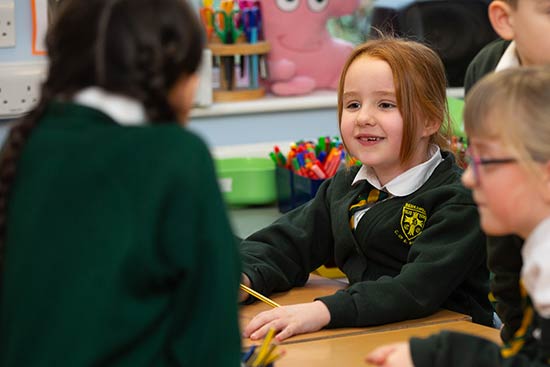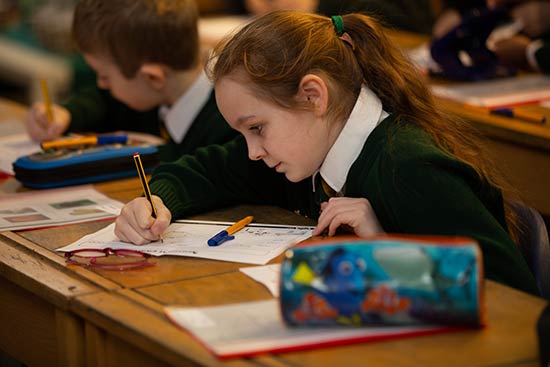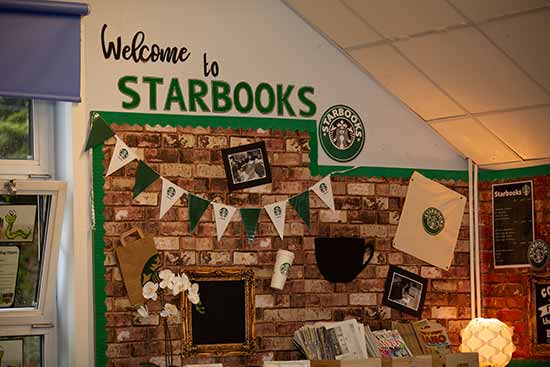Skip To A Section!
Key Files
Phonics and spelling
Phonics
Introducing young children to the joy and wonder of books requires a systematic teaching of phonics. Here at Berkswell, we use Letters and Sounds to teach phonics as our effective phonics approach from Nursery to Year 2. A document with details of this scheme is available from the link below.
The phonics approach teaches children to decode words by sounds, rather than recognising whole words. The emphasis in early years teaching is on synthetic phonics, in which words are broken up into the smallest units of sound (phonemes).
We use Phonics Play as a recourse to support our teaching of letters and sounds
Children are systematically taught around 40 phonic sounds and the combination of letters used to represent each sound.
The video shows you the correct articulation of all 44 phonemes

Here is an overview of what is covered in phonics and when it is covered for each year group from nursery to year one.
Assessment
Children phonics knowledge is regularly assessed through formal and informal assessments. This information is then used to make adaptations in class to ensure all children meet the expected standard. Alongside informal daily assessments and formal half termly assessments, children in Year One are assessed using the Governments Phonics Screening Check which takes place every June. The screening check is designed to assess children’s phonics ability and includes a list of 40 words – half real, half pseudo – which each pupil reads one-to-one with a teacher. It aims to help identify pupils with below expected progress in phonic decoding. These pupils will receive additional intervention and then retake the check to assess how their phonics ability has improved, relative to the expected level.
For more information regarding the check

Spellings
In addition to our phonics programme, children in Year One also begin spelling lessons to complement and cover all of the expectations set out in the National Curriculum.
Information on what is covered can be found in the same overview for phonics.
Year Two and through to Year Six, children are taught spellings through our spelling programme which is in line with government expectations. An outline of this can be accessed through the same file above- Phonics and Spelling Overview.

How we teach Spellings
We teach spellings in a variety of ways ranging from playing an assortment of games such as ‘hang man’ and ‘beat the clock’, mnemonics, spotting patterns, word searches, dictionary work, dictation and sentence work.
Assessments
Children’s spelling ability is regularly assessed. High expectations of applying correct spellings, in particular, each year groups common exception words, are looked at daily during all curriculum subjects. Children are given informal feedback on their spelling ability orally and written, as well as, creating their own spelling word banks. All classes display spelling rules for the present week and past 2 weeks to ensure children have access and revision of key spelling rules. In addition to informal assessments, teachers formally assess pupils every 4-6 weeks. This information is then used to adapt teaching in class and to plan for any intervention groups and support.

Useful Links
Phonics
Spelling
The following resources are excellent for supporting your child’s understanding of different spelling rules.
For children who have their own login
Reading
At Berkswell, we believe that a quality English curriculum should develop children’s love of reading, writing and discussion.
Reading has a central place in the learning experience of all children, so we aim to make reading the key focus of our English curriculum. Children are immersed in the wonders of high quality texts, combined with learning reading skills that are embedded across the whole curriculum. We aim to instil a life-long passion for reading, unlocking a rich reading culture drawn from a varied literary heritage. We value reading as a key life skill, and are dedicated to enabling our pupils to become lifelong readers.
At our school, we teach reading using a range of strategies including: BREAK (Berkswell Reading for Enjoyment And Knowledge), Guided Reading, Reading for Pleasure and use of the school library. For more detailed information about our approaches to reading, please see the English policy.
Writing
At Berkswell, we believe that a quality English curriculum should develop children’s love of reading, writing and discussion.
Our intent is for our pupils to become fluent, articulate and enthusiastic writers for a variety of purposes and audiences. We provide the children with a range of opportunities to combine the formal conventions of the English language whilst fuelling their creativity.
At Berkswell School Writing is a crucial part of our curriculum. All children from Foundation Stage to Year 6 are provided with many opportunities to develop and apply their writing skills across the curriculum.
With regards to Writing, we intend for pupils to be able to plan, revise and evaluate their writing. To be able to do this effectively, pupils will focus on developing effective transcription and effective composition. They will also develop an awareness of the audience, purpose and context, and an increasingly wide knowledge of vocabulary and grammar. We also intend for pupils to leave school being able to use fluent, legible and speedy handwriting.
For more details on our approaches to writing, please see the English policy.
